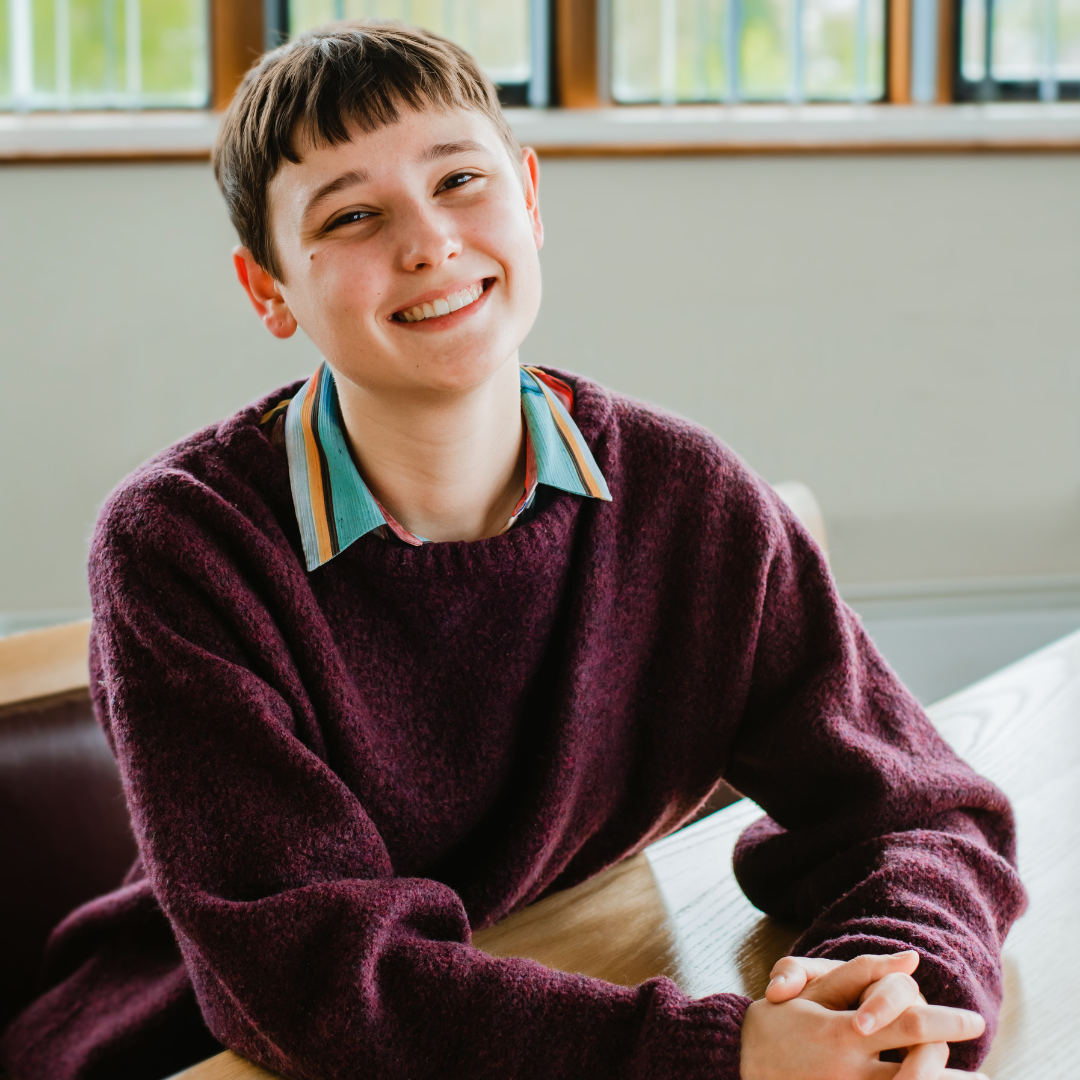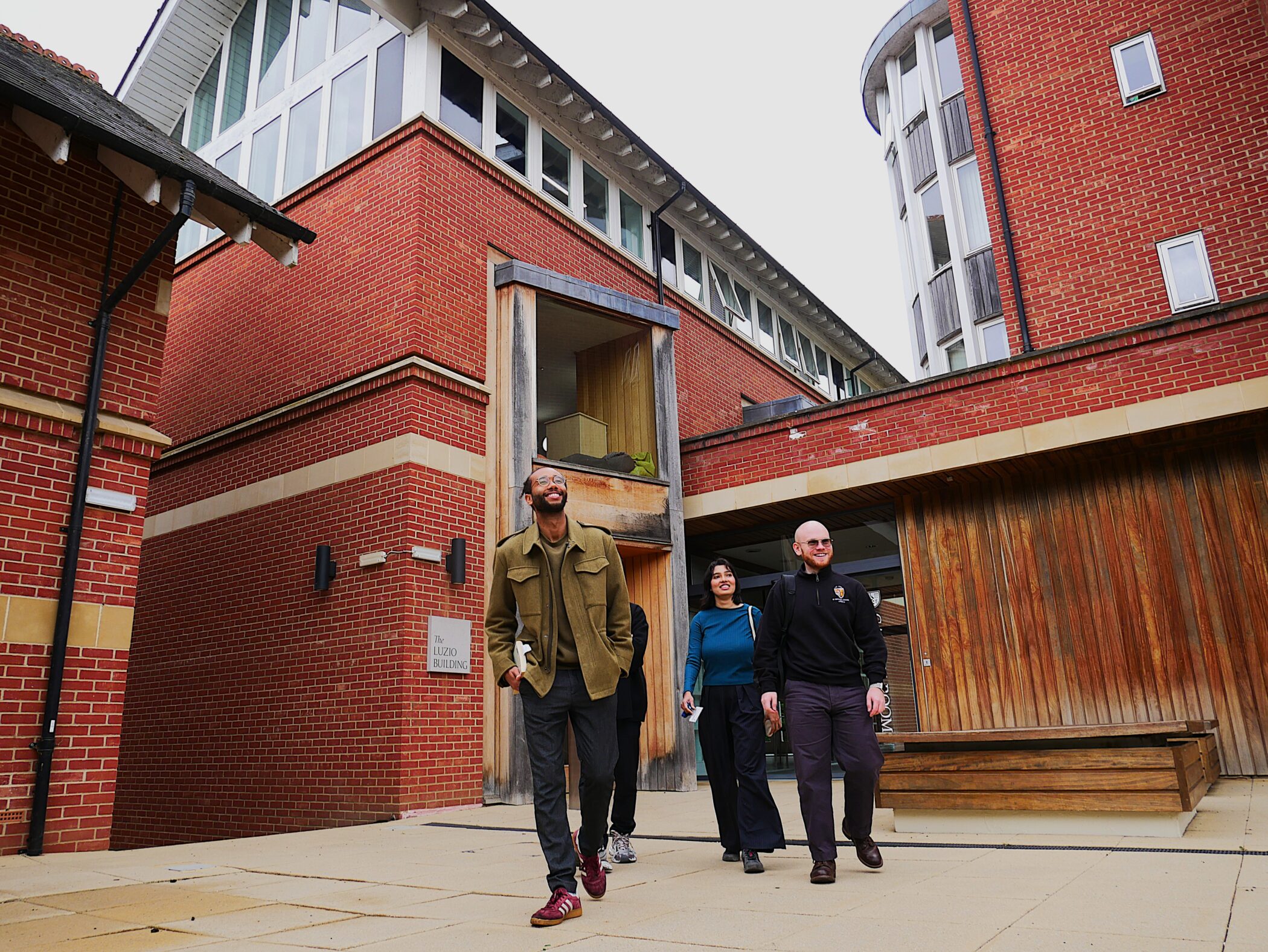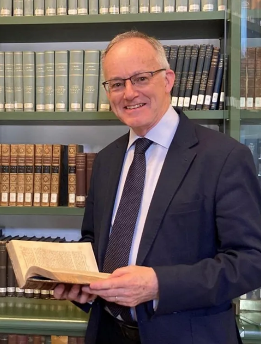Alice matriculated in 2022 and is studying the four-year undergraduate Classics degree course. She tells us about her personal journey to Cambridge, and why we should all join the gardening society.
Can you tell us about your personal journey to Cambridge and what life for you looked like before you joined the University?
As a child my family moved around a lot – from the States, to Russia, then Germany and France. While living in Germany, I attended a school run by a Benedictine monastery in the Alps: half my teachers were monks, and I was taught Latin and Greek, along with modern languages.
When I moved to France, I attended a school there and then another across the border in Switzerland. After I graduated, I took some time off, and decided to apply to Cambridge to study Classics. Latin and Greek were not part of the academic curriculum in the last two schools I went to, so in the boredom of lockdown I studied the UK school curricula for both languages. The rest of the two years I had in between school and university were spent travelling and working in various jobs – anything from hospitality to Communications for NGOs.
Why did you choose to study at St Edmund’s College?
If I was going to study Classics, then I wanted to do it at Cambridge. The Faculty of Classics here is one of the leading ones for the subject in the world and one of the biggest in the country. There is a wealth of different opinions and perspectives, and a lot of leading research is being conducted here. The Museum of Classical Archaeology, which houses one of the largest plaster cast collections in the world, is right in the faculty, and the Fitzwilliam Museum, which houses a great Classics collection, is just down the road. If you’re going to do a subject that’s as niche as Classics, then you want to go where all the best academics and resources are.
I originally applied to a different college, not knowing that mature colleges existed. During my application process, other colleges had access to my file, and St Edmund’s reached out to me with interest – meaning I was “pooled” in Cambridge terminology. Really, it was the best thing that could have happened: the college suits me very well.
How did you find the application process?
Originally, I had a holistic interview and a language exam for the three-year version of the Classics course (which requires proficiency in Latin). When I got pooled, I had a second interview specifically for St Edmund’s, and also a second language exam, since it was thought I would do better in the four-year course, wherein you study both languages from scratch. That change has been extremely beneficial to my Latin and Greek proficiency and I’m very grateful to the professor that originally suggested it!
Life at St Edmund’s College
What motivated you to choose your field of study?
I’ve been fascinated with the classical world since childhood – my parents used to read the Greek myths to me as bedtime stories. That fascination only grew when I got to study the languages themselves at school.
Also, Classics is an incredibly interdisciplinary subject: it brings together the study of language, linguistics, literature, history, philosophy and art and archaeology. The course allows me to discover several different academic disciplines, but all against the backdrop of cultures I find mesmerising.
Fundamentally though, I seek an education in the traditional sense of the word, that offers transferable skills like research, critical thinking, and expressing my thoughts, but also broadens my horizons in terms of knowledge of different people and ideas. You can get those skills from any humanities degree – I just wanted to study something I wouldn’t get bored of, and Classics provides me with that variety.
Can you share a memorable experience from your time at St Edmund’s College so far that has had a significant impact on you?
It’s more an accumulation of small, positive experiences that have left a lasting impact once they build up – interesting conversations, fun activities, the like.
Are there any professors, mentors, or classmates who particularly inspire or influence you? If so, how are they impacting your personal or professional development?
The peers I meet at St Edmund’s tend to be interesting, friendly and inspiring, and I’ve also gotten very supportive feedback from my Director of Studies, Dr David Friedman.
How has attending St Edmund’s College enabled you to thrive? Can you share a project, research endeavour, or extracurricular activity you are involved in that you find especially rewarding or impactful?
There are so many projects happening at St Edmund’s all the time! I’ve enjoyed running the gardening society, being on the swimming team, going to feminist book club meetings, working behind the bar, watching student plays in the orchard, listening to and participating in student open mic nights, and so much more.
Tell us more about the Gardening Society
I joined the gardening society when I started at Eddie’s and have, almost accidentally, ended up helping to run it. It has definitely expanded my knowledge of plants, and it’s a fantastic break from studying to go and dig, plant or just breathe in the fresh air – especially since it’s right behind the library.
Don’t forget to follow the gardening society on Instagram @eddiessecretgarden





